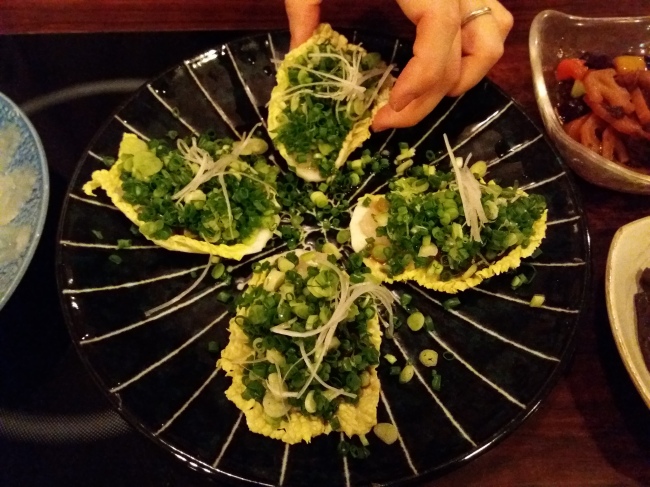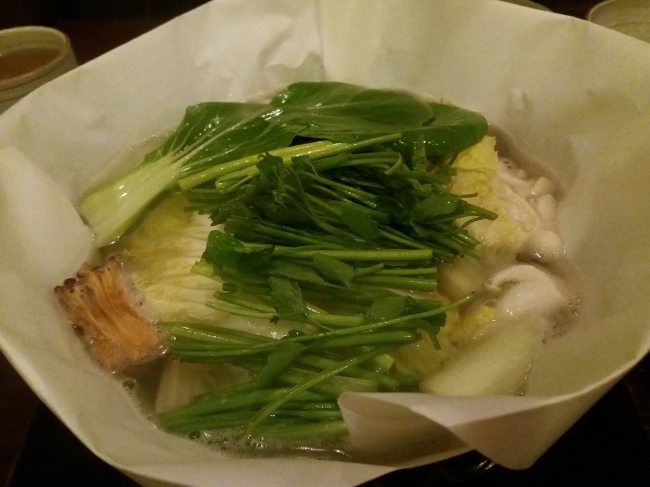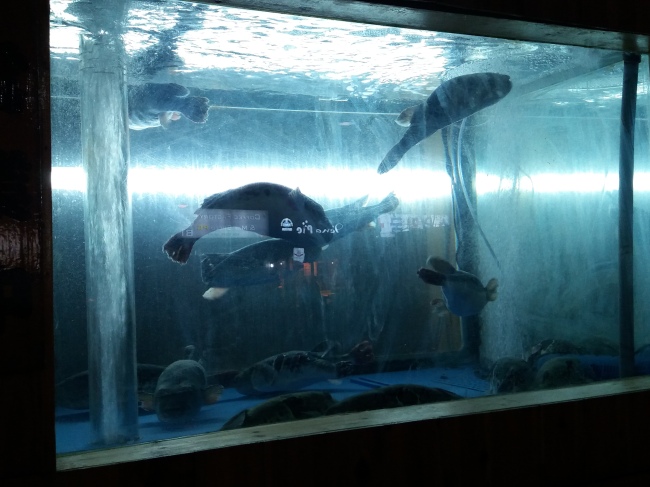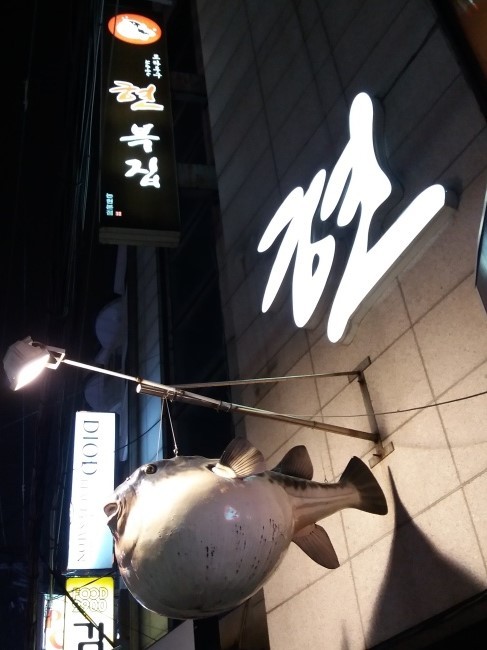[The Palate] Blowfish, a chancy delicacy worth the price
By Korea HeraldPublished : Dec. 16, 2016 - 20:11
At this moment the food we all should be devouring is seafood, which is at its peak during the winter season.
Restaurants are gleaming with the freshest catches during the colder months of the year, harvest time for succulent cold-water fish and shellfish from around the peninsula.
Blowfish, also known as pufferfish, fugu and “bokeo” in Korean, are at their fattest and plumpest in the winter, which makes it an ideal time to enjoy them. Having the texture of a smaller-bodied monkfish and a mellow white fish flavor, blowfish is a versatile fish, despite its dark side.
The poisonous neurotoxin tetrodotoxin, found in parts of the fish, makes its consumption highly dangerous and potentially deadly, but has given blowfish “god-like” status among food lovers around the world.
Restaurants are gleaming with the freshest catches during the colder months of the year, harvest time for succulent cold-water fish and shellfish from around the peninsula.
Blowfish, also known as pufferfish, fugu and “bokeo” in Korean, are at their fattest and plumpest in the winter, which makes it an ideal time to enjoy them. Having the texture of a smaller-bodied monkfish and a mellow white fish flavor, blowfish is a versatile fish, despite its dark side.
The poisonous neurotoxin tetrodotoxin, found in parts of the fish, makes its consumption highly dangerous and potentially deadly, but has given blowfish “god-like” status among food lovers around the world.

The rarer and more prized an ingredient, the more highly coveted it becomes in the competitive world of eating and sharing on Instagram -- the bragging rights of eating and surviving a blowfish meal are second to none. As only a specially licensed chef using specialty knives and equipment to extract the edible parts of the fish are able to serve the delicacy to the public, blowfish is expensive, which is why this fish may never become mainstream.
As one of many delicious fishes in the world, one would need to ask if it is worth the risk of poisoning. Korea has a great number of blowfish restaurants -- which might detract from its appeal as an exotic food elsewhere in the world, where such restaurants are rare, apart from in Japan. Regulations are strict in Korea, but it would be advisable to eat at a reputable restaurant or long established ones to allay any concerns.

Hyeon Bok Jip near Dosan Park in Gangnam is the only branch in Korea of the widely popular Japanese restaurant, Genpin Fugu, serving “toragugu,” the highest grade of blowfish. Since it’s opening in 2003, Hyeon Bok Jip has evolved from a small cavernous space on the ground floor to a cozy, two-level hidden gem for celebrities and blowfish lovers alike.
Serving their a la carte and set menu in the same style as Genpin Fugu, Hyeon Bok Jip dishes are executed with perfection every time, offering the best ingredients in the most organic style possible. The blowfish dinner set costs a hefty 90,000 won ($76), but with seven courses starting with a chewy citron-dressed blowfish skin salad, one feels the excitement of a once-in-a-lifetime meal.

Hyeon Bok Jip diversifies this “high-maintenance” fish as sashimi, deep-fried in a refreshing soup and assorted smaller dishes, taking advantage of its high collagen texture and beneficial properties.
From the 100 percent organic house ponzu made with Jeju sudachi, soy sauce and grated persimmon, to the natural wooden hot pot with organic paper used so as to not interfere with the taste, the purity of the ingredients and well-tailored presentation are clearly worth the high price.
The collagen rich “jiri” shabu shabu, enhanced by the still wriggling moving bones of the blowfish with fresh organic vegetables and tofu, presets the final course of blowfish as porridge to savor and enjoy every last bit. If you are going to enjoy blowfish, this is the time and the place to do so.
By Christine Cho (thepalatekorea@gmail.com)
Christine Cho, a Korean-American expat in Seoul, has been eating and cooking her way around the world for 16 years as a private chef. --Ed.
Hyeon Bok Jip

Address: 96-15 Nonhyeon-dong, Gangnam-gu, Seoul
Telephone: (02) 511-6888
-
Articles by Korea Herald








![[Graphic News] More Koreans say they plan long-distance trips this year](http://res.heraldm.com/phpwas/restmb_idxmake.php?idx=644&simg=/content/image/2024/04/17/20240417050828_0.gif&u=)
![[KH Explains] Hyundai's full hybrid edge to pay off amid slow transition to pure EVs](http://res.heraldm.com/phpwas/restmb_idxmake.php?idx=644&simg=/content/image/2024/04/18/20240418050645_0.jpg&u=20240419100350)






![[From the Scene] Monks, Buddhists hail return of remains of Buddhas](http://res.heraldm.com/phpwas/restmb_idxmake.php?idx=652&simg=/content/image/2024/04/19/20240419050617_0.jpg&u=20240419175937)

![[KH Explains] Hyundai's full hybrid edge to pay off amid slow transition to pure EVs](http://res.heraldm.com/phpwas/restmb_idxmake.php?idx=652&simg=/content/image/2024/04/18/20240418050645_0.jpg&u=20240419100350)

![[Today’s K-pop] Illit drops debut single remix](http://res.heraldm.com/phpwas/restmb_idxmake.php?idx=642&simg=/content/image/2024/04/19/20240419050612_0.jpg&u=)